Chapter: RF and Microwave Engineering : Microwave Tubes and Measurements
Magnetron
MAGNETRON
MAGNETRON OSCILLATORS
Hull invented the magnetron in 1921 , but it
was only an interesting laboratory device until about 1940. During World War
II, an urgent need for high-power microwave generators for radar transmitters
led to the rapid development of the magnetron to its present state.
All magnetrons consist of some form of anode
and cathode operated in a de magnetic field normal to of the crossed field
between the cathode and anode, the electrons emitted from the cathode are
influenced by the crossed field to move in curved paths. If the de magnetic
field is strong enough, the electrons will not arrive in the anode but return
instead to the cathode. Consequently, the anode current is cut off. Magnetrons
can be classified into three types:
1.Split-anode
magnetron: This
type of magnetron uses a static negative resistance between two anode segments.
2.Cyclotron-frequency
magnetrons: This
type operates under the influence of synchronism between an alternating component of electric field and a periodic oscillation
of electrons in a direction parallel to the field.
3.Traveling-wave
magnetrons: This
type depends on the interaction of electrons with a traveling electromagnetic field of linear
velocity. They are customarily referred to simply as magnetrons.
Cylindrical Magnetron
A schematic diagram of a cylindrical magnetron
oscillator is shown in Fig. 10-1-1. This type of magnetron is also called a conventional magnetron.
In a cylindrical magnetron, several reentrant
cavities are connected to the gaps. The de voltage Vo is applied between the cathode and the anode. The magnetic flux
density Bo is in the positive z direction. When the de voltage and the
magnetic flux are adjusted properly, the electrons will follow cycloidal paths
in the cathodeanode space under the combined force of both electric and
magnetic fields as shown inFig. 10-1-2.
Equations
of electron motion. The
equations of motion for electrons in a cylindrical
magnetron can be written with the aid of Eqs.(l-2-Sa) and (1-2-Sb) as
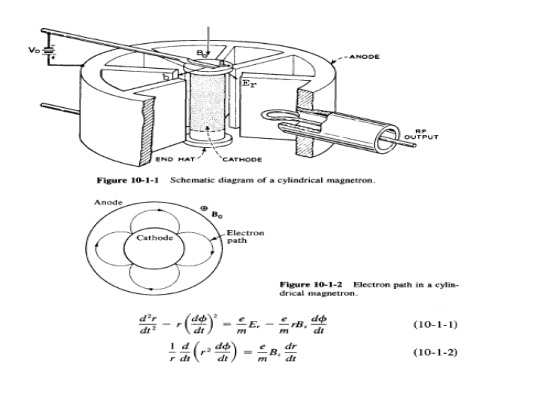
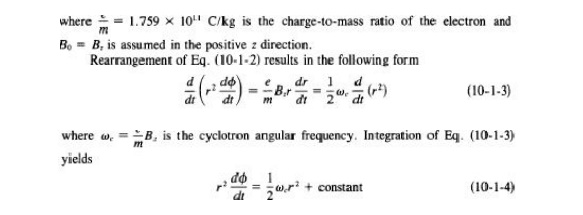
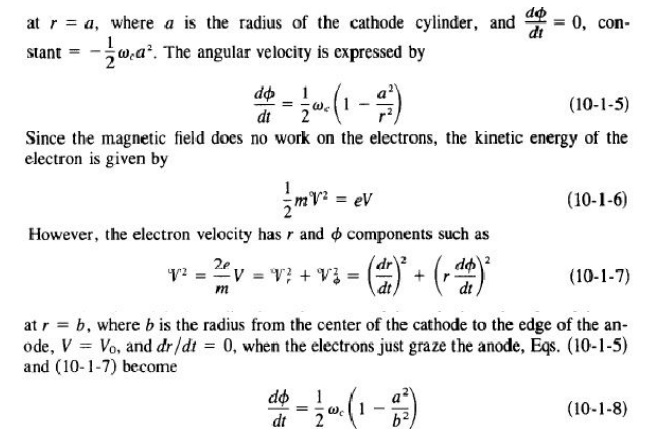
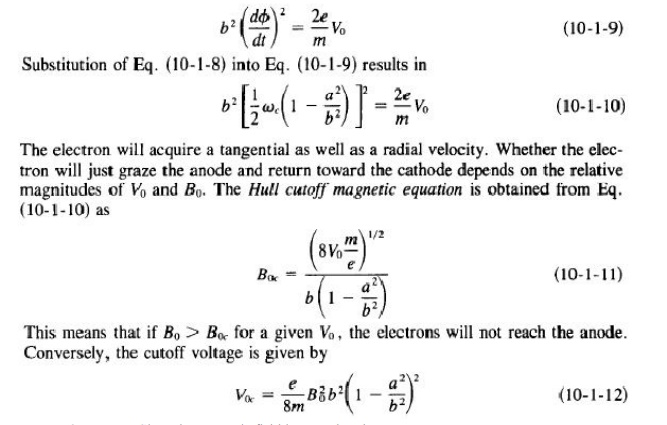
Cyclotron angular frequency. Since the magnetic field is normal to the motion of electrons that travel in a cycloidal path, the outward centrifugal force is equal to the pulling force. Hence
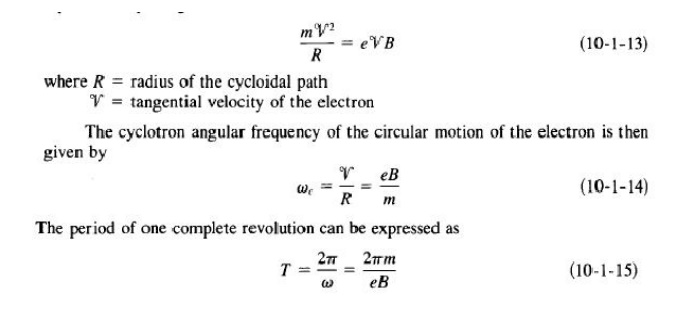
Since the slow-wave structure is closed on
itself, or "reentrant," oscillations are possible only if the total
phase shift around the structure is an integral multiple of 27T radians. Thus,
if there are N reentrant cavities in
the anode structure, the phase shift between two adjacent cavities can be
expressed as

where n is an integer indicating the nth mode
of oscillation. In order for oscillations to be produced in the structure, the
anode de voltage must be adjusted so that the average rotational velocity of
the electrons corresponds to the phase velocity of the field in the slow-wave
structure. Magnetron oscillators are ordinarily operated in the 7T mode. That
is
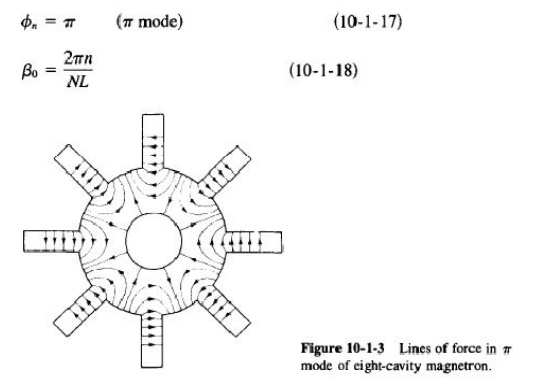
Maxwell's equations subject to the boundary
conditions. The solution for the fundamental cf> component of the electric field has the form

where £ 1 is a constant and f3o is given in Eq. (10-1-18). Thus, the traveling field of the fundamental mode travels around the structure with angular velocity

where~ can be found from Eq. (10-1-19). When
the cyclotron frequency of the electrons is equal to the angular frequency of
the field, the interactions between the field and electron occurs and the energy
is transferred. That is,

Related Topics